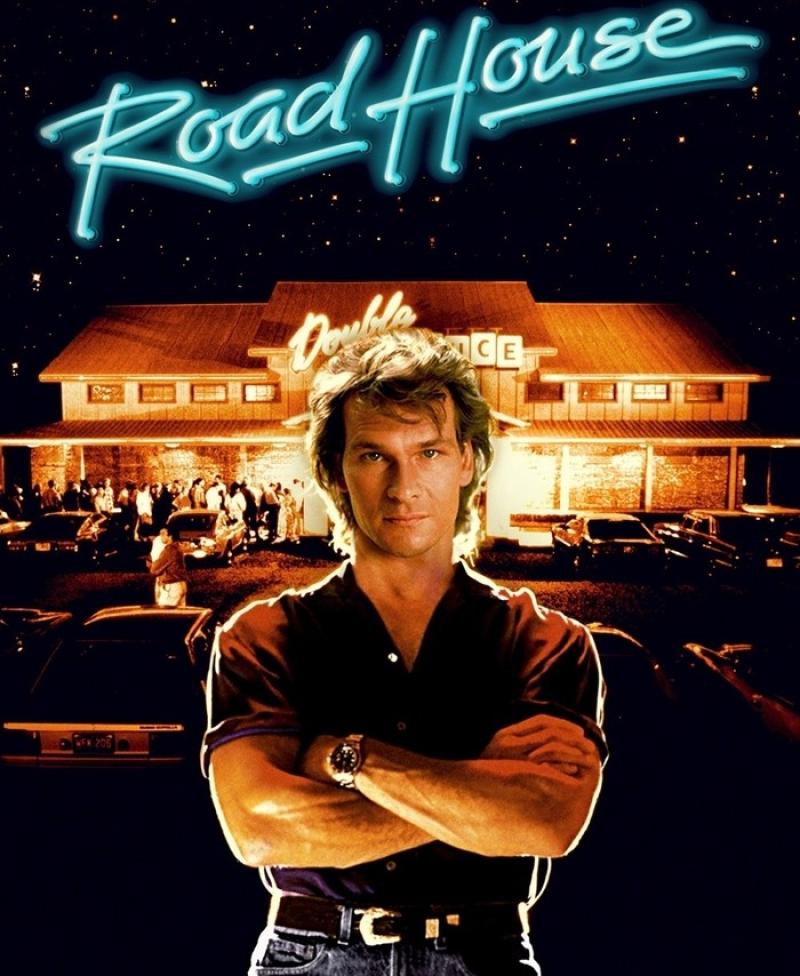What Makes a Movie Life-Changing?



www.msn.com /en-us/movies/news/what-makes-a-movie-life-changing/ar-AAVQijD
What Makes a Movie Life-Changing?
6-7 minutes Invalid Date
T his is an edition of Up for Debate, a newsletter by Conor Friedersdorf. On Wednesdays, he rounds up timely conversations and solicits reader responses to one thought-provoking question. Every Monday, he publishes some thoughtful replies. Sign up for the newsletter here.
Last week I asked readers about films that changed their lives, or that they judge to be underrated (among other questions). Rob shared a bit of dialogue that has stuck with him for 50 years:
It was in Francis Ford Coppola’s The Conversation , starring Gene Hackman. The two main characters see a homeless man sleeping on a city bench. One character expresses disgust. And the other replies something like, “Whenever I see somebody like that, I can’t help thinking he was once somebody’s beautiful baby boy.” That hit me like a Zen slap. I certainly hadn’t thought about society’s unfortunates that way before but it stuck with me. When I was a teaching physician at an inner-city hospital, I would occasionally mention this scene to residents who were struggling to see the humanity in some of our patients. Don’t know if it helped them, but that line had an impact on me.
James harkens back to the summer of 1990, when he was a high-school student with a job bagging groceries and the movie Pump Up the Volume starring Christian Slater was in theaters:
It was about a high-school kid running a pirate radio station in suburban Arizona––a story of unfocused rebellion, with a subplot about abusive authority. I saw it six times in the theater—no easy feat for a kid who had to borrow his mom’s car—and countless more times from the video store.
The real impact was on the soundtrack. In 1990, in Grand Rapids, Michigan, I pretty much only knew the music on the radio, and this was a year before Nirvana changed radio. I knew there was more, I just didn’t know how to find it. Pump Up the Volume was a buffet of subgenres, and I explored all of them. I bought cassettes and then CDs by Leonard Cohen, the Pixies, Richard Hell, the Descendents, Soundgarden, Urban Dance Squad, and more. I can’t think of any movie that had a greater impact on my life. I’ve seen Pink Floyd: The Wall more; now that I’m almost 50 I relate more to Office Space . I don’t think I’ve seen Pump Up the Volume in 30 years. But its impact on me is indelible.
John writes:
Patrick Swayze says in Road House , “Fear causes hesitation, and hesitation will cause your worst fears to come true.” I’ve been quoting it ever since. Terrible movie, great line.
Luciano recommends a couple of lesser-known titles:
Thinking about films that changed my life, it always goes back to those films that you can see over and over again and still find something new each time. For me, it’s an obscure treasure, Lina Wertmuller’s 1976 Italian masterpiece Seven Beauties . It was a film about toxic masculinity, about gender roles, and the Holocaust: an interesting combination.
When I first saw it as a kid, it was by accident: my off-the-boat Italian dad was watching it on PBS, I think, and I watched along and laughed hysterically. He made me leave the room, but by then the worst violence of the film was already done—it’s that European mentality of the permissiveness of erotica but a hard line on onscreen violence.
I’ve seen this film countless times, and it keeps me thinking: are we destined to certain roles or do we make our own identity? Does evil necessarily connect to gender (the villain is a sadistic Nazi camp commandant played by a woman, Shirley Stoller)? How do the horrors of war shape or alter our moral compass (prostitution plays a huge role in this film)? Wertmuller is considered a heavily Marxist feminist director, but this film is probably the most nuanced film she’s ever made, and a true masterpiece. It needs to be seen more often.
Another unsung gem that needs either a re-examination or a remake is the late Disney film Bedknobs and Broomsticks (1971). It was the backup for Mary Poppins in case Walt Disney couldn’t get the rights to the story. This was shelved until after Disney’s death, and it’s a shame: take Mary Poppins and put it in the Blitz during World War II. I’ve seen this countless times—I even own a production animation cell from it (don’t ask how much I paid)—and it’s a film that takes a fun spin on WWII, and could use a remake as Disney has been doing lately with films like Lion King , Jungle Book , and Aladdin .
Errol defends a film that’s fallen out of fashion:
As far as a movie that changed my life, American Beauty may not stand the test of time, but when I watched it in my formative years it gave me a new sense of viewing the world as one big beautiful moment after another––a sense that any and all things can be appreciated and loved all the way down to a bag floating in the wind. It gets made fun of for that, and the plot and lead actor [Kevin Spacey] may give people pause today, but even in the worst of times, I still find reasons to be kind to others and glad to be alive because of that movie.
Jonathan has a request for Hollywood:
How about a movie about the fall of the Berlin Wall?
I’m not aware of any that’s been made to date (though the Wall did have a prominent role in one of my all-time favorites, The Lives of Others ). Plus, it could have broad appeal—for conservatives because Communism is bad, Republican president good; and for liberals because haven’t we heard enough about walls going up over the last seven years?
And I’m going to chime in, too. Back in 2017, I wrote about the film The Great Beauty , which helps me to reflect on how humans ought to spend their lives every time I watch it again. As for an underrated movie, my pick is the best of the romantic comedies co-starring Tom Hanks and Meg Ryan. No, not Sleepless in Seattle or You’ve Got Mail . I refer to Joe Versus the Volcano .







I dont think any movie has been life changing for me. There are a couple I thought had a lot of meaning though. The Stunt Man starring Peter O'Toole and Steve Railsback has a theme of illusion vs reality and the teaching that sometimes we have to trust people or things that seem superficially hostile or indifferent to us, and one of my favorite movies, Paul Newman's Nobody's Fool , which is about a small town ne'er do well in his 60's who increasingly comes to the conclusion that he has wasted his life, but in the end comes to terms with it grace and ragged dignity.
Also, the original The Razor's Edge with Tyrone Power and Gene Tierney, which is about finding away to get above the twists and turns of life in a material world.
The Stunt Man
Nobody's fool
The Razor's Edge -
Terrible movie, great line.
Phew! I saw a title about life-changing movies, then a picture of Roadhouse …
I watched CODA the other day, and I would put it in the life-changing category. It really does a great job of putting the able bodied into the shoes of a deaf person. Wonderful movie with a great story. I felt like a pussy because my eyes kept getting watery. Must of got something stuck in them.
As a husband and a father, watching “Life is Beautiful” made me appreciate the love one enjoys in marriage and the effortless duty one selflessly gives a son.
Boundless joy to draw on both accounts when the simplest of deposits is made.
So more life affirming. Give it a watch.
Although being much into the movies, as most here know, I can't think of a single movie that has "changed" my iife, but I can think of a few that had a considerable influence on it.
Gentleman's Agreement (1947) I was 10 years old, had already felt some effects of antisemisism but did not yet fully comprehend it until I saw this movie..
A Place in the Sun (1951 - the movie adaptation of Theodore Dreiser's novel An American Tragedy) At the age of 14 I fell in love with Angela Vickers (Elizabeth Taylor), and as my family was not that well off financially back then I pictured myself as George Eastman (Montgomery Clift) mixing with people with wealth and much more confidence than I had, and in a way it was a confidence builder by doing so (notwithstanding the tragic ending). It also taught me to be careful in my relationships with girls.
The Young Philadelphians (1959) I saw this movie while I was in law school, and it helped me gain the ambition to succeed in that profession.
Exodus (1960) Although I knew from the time I was a child that Israel was important to me, until I saw that movie I did not feel a strong affinity with Israel, but it deepened my attachment to it the effects of which I came to realize on my first trip to Israel.